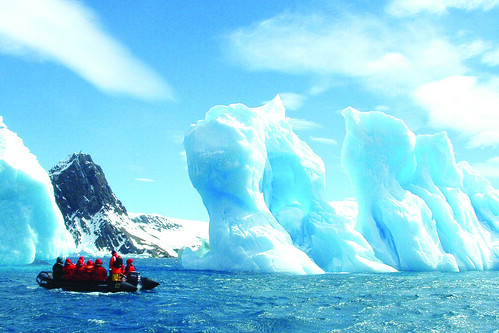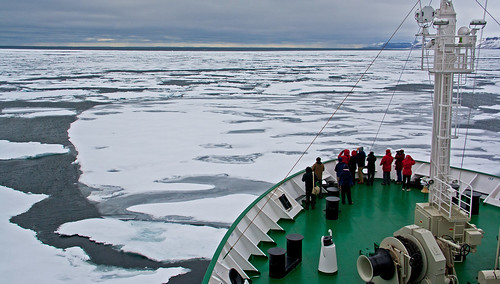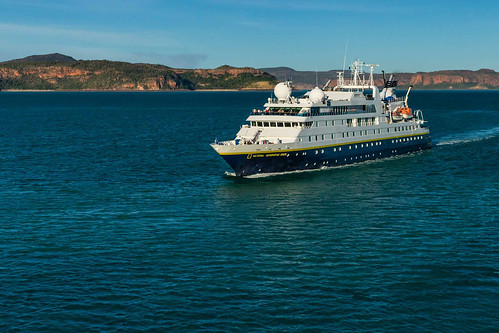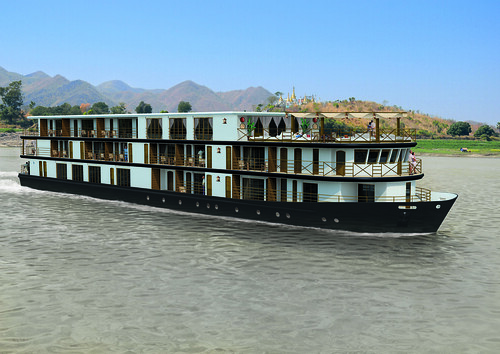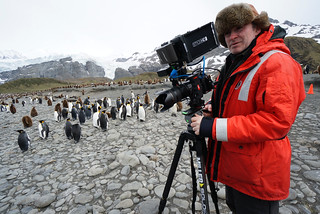Today, at the Clinton Global Initiative, the National Geographic Society announced a commitment to expand “Pristine Seas: Saving the Last Wild Places in the Ocean.”
During the next five years, the National Geographic Pristine Seas project will inspire governments to protect approximately 20 new worldwide locations as fully protected marine reserves for a total of more than 2 million square kilometers. Setting aside areas that are off-limits to commercial fishing and mining in order to preserve their biological importance is an approach very similar to national parks created on land. Fulfilling this commitment will involve governments, local partners and influential business leaders. If fulfilled, it will help countries meet the United Nations Convention on Biological Diversity’s target of protecting 10 percent of the world’s oceans by 2020.
“Achieving this ambitious goal will help protect the natural heritage of many of the world’s most pristine seas. Through National Geographic’s unique assets, we build coalitions that will help create and sustain these pristine areas for generations to come,” said Enric Sala, director of the National Geographic Pristine Seas project.
The commitment expands a conservation model that has already proven successful. Since 2009, National Geographic, through its Pristine Seas project, has conducted expeditions to 10 of the most pristine places in the ocean. Using a combination of exploration, scientific research, economic analysis and communications, the project has helped to inspire country leaders to protect areas in the United States, Chile, Gabon, Kiribati and Costa Rica, covering more than 400,000 square kilometers.
“While the ocean may seem vast and inexhaustible, today, as a result of global overfishing, pollution and climate change, we see undeniable evidence of fisheries collapsing, coral reef degradation and marine dead zones,” said Terry Garcia, National Geographic’s chief science and exploration officer. “With this commitment, National Geographic is taking a major step to protect and conserve our natural legacy.”
Like national parks, marine reserves provide full protection of unique undersea mountains, large predators and amazing natural formations such as coral reefs.
National Geographic Pristine Seas is currently working on three major new marine reserves. The first, in the United States, could result in a historic expansion of the Pacific Remote Islands Marine National Monument. The two others are located in the South Pacific region near the Pitcairn Islands (an overseas territory of the United Kingdom) and near Palau.
This crucial work to save these priceless ocean resources is in keeping with the traditions upon which the National Geographic Society was founded 126 years ago. National Geographic is joined in this effort by partners including the Waitt Foundation, Prince Albert of Monaco, the Leonardo DiCaprio Foundation, Jynwel Foundation, the Leona M. and Harry B. Helmsley Charitable Trust, Blancpain, Davidoff Cool Water, Lindblad Expeditions, Dynamic Planet, former President José María Figueres of Costa Rica and individual donors.
About the National Geographic Society
With a mission to inspire people to care about the planet, the 126-year-old National Geographic Society is one of the world’s largest nonprofit scientific and educational organizations. Working to inspire, illuminate and teach, the member-supported Society reaches over 600 million people worldwide each month through its media platforms, products and events. National Geographic has funded more than 11,000 research, conservation and exploration projects, and its education programs promote geographic literacy. For more information, visit www.nationalgeographic.com.
About the Clinton Global Initiative
Established in 2005 by President Bill Clinton, the Clinton Global Initiative (CGI), an initiative of the Clinton Foundation, convenes global leaders to create and implement solutions to the world’s most pressing challenges. CGI Annual Meetings have brought together more than 180 heads of state, 20 Nobel Prize laureates, and hundreds of leading CEOs, heads of foundations and NGOs, major philanthropists, and members of the media. To date, members of the CGI community have made more than 2,900 commitments, which are already improving the lives of more than 430 million people in over 180 countries.
CGI also convenes CGI America, a meeting focused on collaborative solutions to economic recovery in the United States, and CGI University (CGI U), which brings together undergraduate and graduate students to address pressing challenges in their community or around the world. For more information, visit clintonglobalinitiative.org and follow us on Twitter @ClintonGlobal and Facebook at facebook.com/clintonglobalinitiative.

